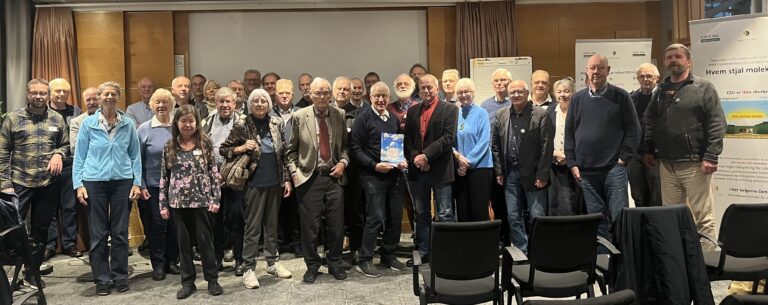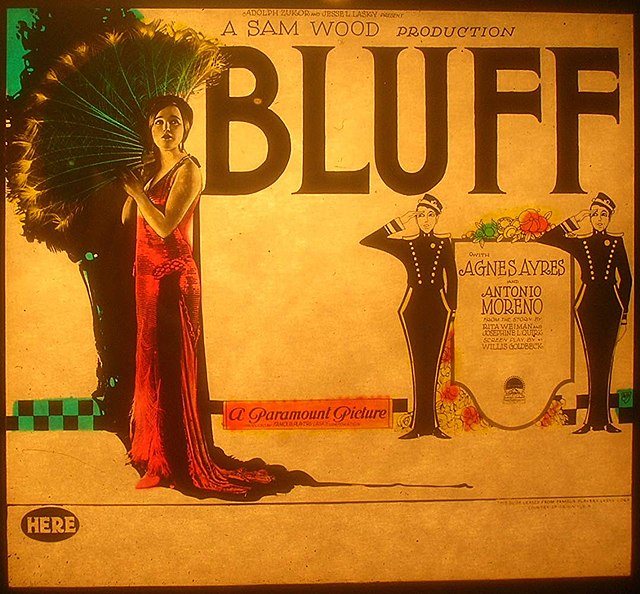Se John Tierneys kolumn som lite förnöjsam helgläsning.
Dear Mr. Gore,
Thank you for sharing your thoughts on my draft of “Verità Inconveniente.” Rest assured that I and the management of La Scala are committed to a serious presentation of your scientific work. I will try to adopt some of your suggestions, but I hope you appreciate the constraints faced by the composer of an opera that is already five hours long.
I agree it would “round out the résumé” of Prince Algorino in the opening scene if he were to sing about his creation of a communications network. But the “Mio magnifico Internet” aria you propose seems to me a distraction — and frankly out of place in an 18th-century Tuscan village. I believe the peasants’ choral celebration of Prince Algorino’s wisdom suffices to establish his virtues.
I will ask our technicians about the feasibility of producing “stinky smoke” to accompany the entrance of Petroleo, but it may be unnecessary. Doesn’t the wizard’s evilness become obvious once he beguiles the Minemaidens into relinquishing their buried treasure? (Note: I will try changing “treasure” to “fossil fuels,” but it will not be an easy rhyme.)
Perhaps, as you complain, Petroleo does exude a certain glamour in his patter song promising magic lanterns and horseless carriages and flying machines. But when he seduces the chief Minemaiden, the music darkens with a menacing crescendo as they embrace, singing “Combustione! Combustione!” There is no mistaking the unholiness of their union, nor its catastrophic consequence once their daughter Carbonia is born.
I grant you it would be more chemically precise to give Carbonia twin siblings named after oxygen. But this would dilute the role and doom our chances of getting Anna Netrebko for Carbonia, and she is essential for the scene on Olympus. If it is to be credible, we must have a Carbonia with the sinister beauty to inflame the passions of Zeus, Poseidon, Aether and the other weather gods.
You ask for a detailed revelation of how Petroleo prevents Prince Algorino from becoming king. I understand your interest and desire to introduce another villain. (Incidentally, the translation of “Bush” would be “Arbusto,” not “Shrubulo.”)
But no narrative purpose is served by Algorino’s singing about his “stolen throne” as he wanders in exile, particularly not in the glade where he encounters the earth goddess Gaia languishing near death. Instead of interrupting her “Molto caldo” aria, he should be focused on Gaia’s mysterious fever.
Nor, I believe, is it necessary for him to “gather data” from Gaia before setting out on his quest to save her, or to involve a new weather goddess named Katrina in the hurricane he encounters on the way to the Isle of Seers. I assure you that the numerical category of the hurricane was omitted only for dramatic purposes — not, as you suspect, because of any doubts raised by your scientific critics of the link between global warming and strong hurricanes.
During Algorino’s instruction in the Weather Seer’s castle, you again accuse me of “caving” to the critics by omitting your famous chart correlating rising temperatures and rising carbon dioxide over the past 600,000 years. But it is of no consequence to me which came first, the carbon dioxide or the temperature. As an artist, I simply felt it would be jarring to interrupt the Seer’s aria with a PowerPoint presentation.
I did plan to use a simpler chart etched on the castle wall for the duet we originally planned for Algorino and the Seer. I loved your idea of matching the musical notes with the graphs of temperatures and CO2 concentrations, but the resulting melodies were unfortunate. I was unable to find any tenor or baritone able to sing either of the graphs. A pity — as you said, the High C0 Duet would have been “an opera first.”
I don’t share your fear that audiences will expect Prince Algorino to “offset his travel footprint,” so I don’t see the need for the tree-planting scene you suggest. Once the Weather Seer has explained Poseidon’s passion and shown him the rising seas, Algorino should immediately rush back to save Gaia. And why, with his lover in peril, would he pause en route to rescue a drowning polar bear?
I’m sorry you were so saddened by the battle scene and the finale. I agree it would end more happily if Algorino vanquished Petroleo and reburied the Minemaidens’ treasure. No doubt we could create a fine aria for Carbonia as she is “sequestered” underground (although we might be accused of copying the “Aida” entombment finale). As you suggest, we could end with an ensemble celebration of Algorino’s marriage to Gaia.
But would a happy ending truly satisfy your devotees — or La Scala’s? Better to stay with tradition. I feel sure that audiences, like the earth goddess, will be moved to tears by the “Ciao, Gaia” aria of the mortally wounded Algorino, and then riveted as she feverishly wanders the stage. With the right soprano, I believe “Basta con la temperatura!” could be an unforgettable Mad Scene.
You complain that it’s a “cliché” for Gaia to collapse and die alongside her lover. Perhaps, as you suggest, we could have her first drape a medal around his neck (although I think the Nobel would be anachronistic). But as much as I admire your other idea for an “outside the box” death scene, I cannot accept it — and again, despite your accusations, this has nothing to do with the scientific criticism of your work. Whether your predictions for sea level rise are correct or not, it would be logistically impossible to end the opera by drowning the village under 20 feet of water.
Sincerely,
Giorgio Battistelli





🙂 🙂 🙂